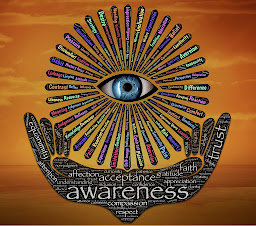Power of Appriciation
The Power of Appreciation
Series: Courage to Encourage
Appreciation is one of the simplest yet most profound gestures we can extend to others. In a world that often focuses on criticism and pointing out flaws, acknowledging someone’s efforts and achievements can be a game-changer. Whether in parenting, professional environments, or personal relationships, the power of appreciation has a ripple effect, creating positive energy that transcends boundaries.
The Transformative Impact of Appreciation
Appreciation does more than lift someone's spirits—it transforms the environment. When people feel appreciated, they are more motivated, confident, and likely to continue contributing positively. This is true for children and adults alike. Whether you're a parent encouraging your child, a manager uplifting your team, or a friend offering support, appreciation can turn the ordinary into extraordinary.
Yet, it takes courage to appreciate. It involves looking beyond outcomes and seeing the efforts, progress, and small victories others might miss. But this courage to encourage is a skill worth cultivating for anyone looking to bring out the best in those around them.
How to Appreciate Effectively
As part of the *Courage to Encourage* video series, I explored ways to make appreciation impactful. Here are some key insights on appreciating others thoughtfully:
1. Be Specific When Praising
Generic praise, while well-intentioned, often falls flat. Telling someone, "Good job" is nice, but it lacks the depth needed to make them feel truly seen. Being specific in your appreciation makes all the difference. For example, instead of saying, "You did great," say, "I really admire how you stayed focused during that tough situation and found a creative solution." Specific praise shows that you’re paying attention and value your effort.
2. Praise the Effort and Progress, Not Just the End Result
Focusing on the journey rather than just the destination is crucial. Whether someone has succeeded or not, respecting their journey fosters resilience and a growth mentality. A parent might tell their child, for example, "I noticed how much time you spent practicing for the exam, and that dedication is something to be proud of." This method teaches that efforts are worthwhile and that failures can serve as teaching moments rather than as excuses to give up. Whether someone has succeeded or not, respecting their journey fosters resilience and a growth mentality. A parent might tell their child, for example, "I noticed how much time you spent practicing for the exam, and that dedication is something to be proud of." This method teaches that hard work is worthwhile and that failures can serve as teaching moments instead of
3. Separate Praise from Correction
Balancing praise and constructive feedback is essential but must be done mindfully. Offering appreciation and correction simultaneously can dilute both messages. If you’ve praised someone and immediately followed up with a suggestion for improvement, the positive message may get lost. Instead, praise and correction should occur at different times to allow both to be internalized. This approach creates a space where people can absorb the appreciation and understand the feedback without feeling diminished.
The Courage to Encourage: Why It Matters
Appreciation is a powerful tool, but it also requires vulnerability. It takes courage to express genuine gratitude and recognize another’s efforts, especially when it’s easier to point out flaws or criticize. But when you choose encouragement over critique, you open doors to trust, collaboration, and mutual growth.
In leadership, whether in the home or workplace, those who encourage others foster environments of safety and creativity. People thrive when they feel supported and valued, and that emotional fuel drives innovation, performance, and well-being.
The Ripple Effect of Appreciation
The power of appreciation doesn’t stop at the individual—it has a ripple effect that extends far beyond. When you appreciate someone, they’re more likely to pass that positivity on to others. Think of it as planting a seed of goodwill; once nurtured, it grows and spreads into something far greater than the initial gesture.
Children who grow up in homes where appreciation is practiced regularly tend to have healthier self-esteem and are more empathetic toward others. Employees in workplaces where appreciation is part of the culture are more engaged and invested in the company's success.
Conclusion
In a fast-paced world where achievements often overshadow efforts, taking the time to appreciate others can seem like a small act, but it carries immense power. It’s a tool for transformation, not only in others but also in ourselves. When we dare to encourage, we create a culture of support, growth, and positivity, which benefits everyone involved.
So, take a moment today to express genuine appreciation—be specific, acknowledge the effort, and let the praise stand on its own. You never know how far a little encouragement can go.
This blog reflects the core principles from the *Courage to Encourage* series, reminding us of the incredible impact appreciation can have on our lives and the lives of others. Keep encouraging and watch the magic unfold. ✨
















Comments
Post a Comment